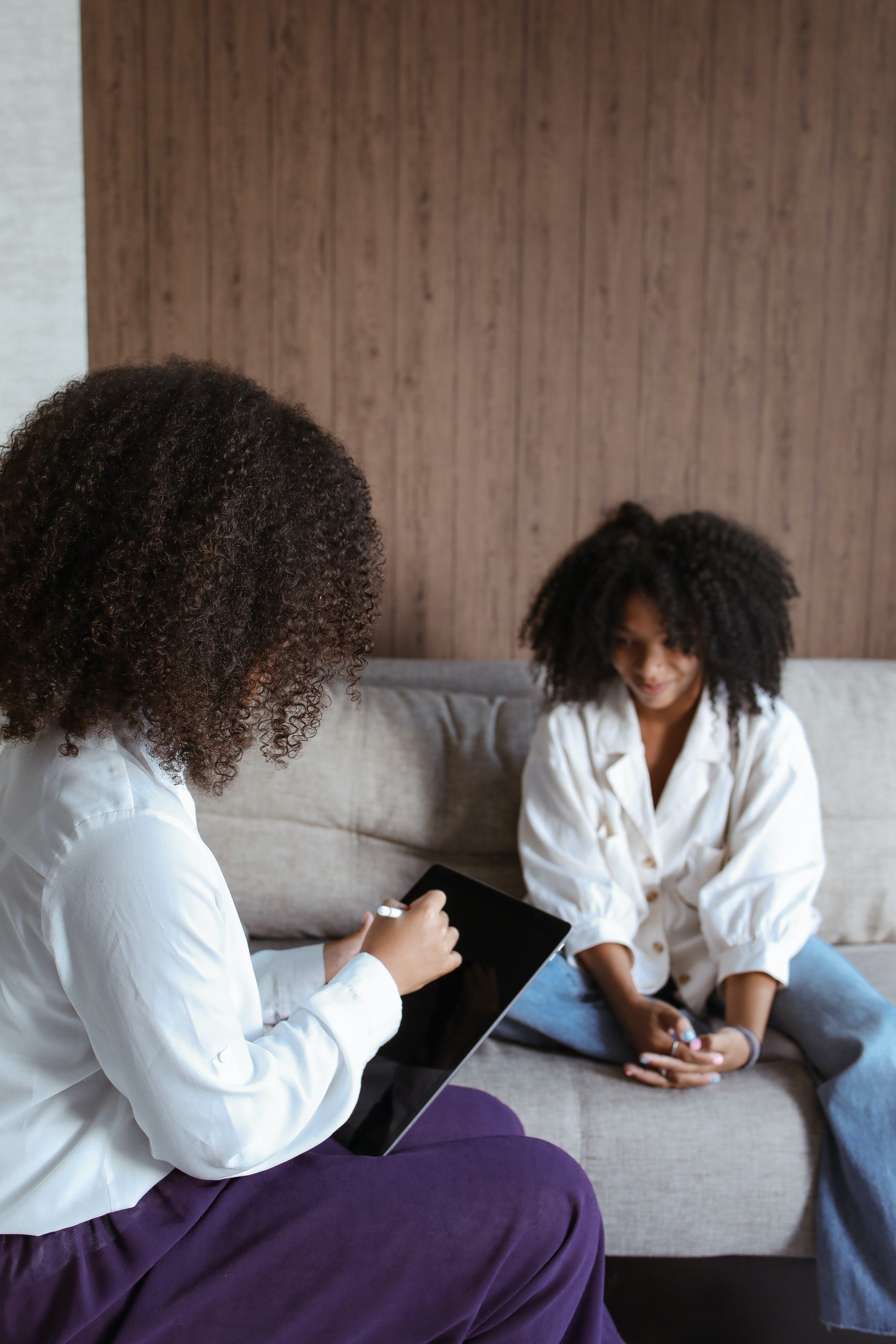The Blog.
As BIPOC, in our continual quest for freedom and liberation, keep in mind the words of Frederick Douglas: “Once you learn to read you will be forever free.”

Lessons from Adam and Eve: Ego, Truth, and Liberation of the Mind
As a child, one of the first biblical stories that I remember being told was the story of Adam and Eve. The story of our earliest ancestors. The earthly mother and father of humanity.
A story so deep, profound, and simple; yet, so complex.
It took me years to see beyond its theological roots and to understand the profound life lessons it provides. Lessons about the human experience, the dangers of deception, and the journey towards the liberation of our mind, body, and soul. In this article, we will analyze this story through the lenses of spirituality, psychology, and decolonization; uncovering insights that are as relevant today as they were thousands of years ago.

Suicide Prevention Month 2024 — Recognizing Low-Key Suicidal Behaviors in BIPOC Communities
As we observe Suicide Prevention Month, it’s crucial to acknowledge the specific challenges faced by the BIPOC (Black, Indigenous, and People of Color) community when it comes to mental health and suicide prevention. For many in these communities, mental health struggles are stigmatized, minimized, or misunderstood, leaving individuals isolated in their pain. At the Urban Institute of Mental Health (UIMH), we are committed to changing this narrative and providing the tools for early intervention, awareness, and healing.

Celebrating 4 Years of UIMH — A Journey of Healing and Liberation
As we reach the four-year milestone for the Urban Institute of Mental Health (UIMH), we find ourselves reflecting on the incredible journey that has brought us here. From our humble beginnings to becoming a beacon of hope for BIPOC, LGBTQIA+, and other marginalized communities, this journey has been nothing short of transformative.

Holistic Approaches for Depression and Anxiety Tailored for the BIPOC Community
Depression and anxiety are common mental health conditions that can significantly impact daily life. While medication can be an effective treatment option, many BIPOC individuals seek holistic approaches to manage their symptoms for a number of reasons to include medical racism; mental health stigma; and he capitalist structure of the healthcare system which plays a significant role in creating dependence on psychiatric medications. The holistic treatment approach focuses on the whole person—mind, body, and spirit—and can be used in conjunction with traditional therapies or as standalone options. This guide is specifically tailored for the BIPOC community, incorporating culturally relevant strategies and practices. These following practices can be incorporated into your daily life to improve your overall mental and emotional health.

Decolonizing Success: How Guatemala Taught Me to Liberate Myself from American Socialization
Guatemala has shown me that success is not measured in material possessions or financial wealth, but rather in the freedom to live authentically, enjoy life's simple pleasures, and prioritize meaningful connections with loved ones. It has taught me to question societal norms and to embrace discomfort as a catalyst for personal growth and self-discovery.

Coping with Trauma: Healing After the Baltimore Bridge Collapse
The collapse of a major bridge is not just a physical catastrophe; it is a psychological trauma that reverberates through the collective consciousness of a city, state, and nation. The sudden loss of life, the fear and uncertainty surrounding the event, and the subsequent grief and mourning can have profound effects on mental health. This is not only true for the direct victims and their families but for all who witness or hear about the tragedy.

The Nationwide Vyvanse Shortage: Have We Become Codependent on Our Psychiatric Medications?
The current nationwide shortage of Vyvanse has raised concerns and shed light on a broader issue—the co-dependency many individuals have developed on psychiatric medications. Please don’t misunderstand me. I am a strong advocate of the use of psychotropic/psychiatric drugs, but ONLY when they are necessary.

The 7 Days of Kwanzaa: Day 5 - Nia (Purpose)
The Antebellum Slave Period falsely embedded the belief that the purpose of Black bodies were to merely serve as forced labor and the empowerment of our White counterparts. During slavery, our ancestors were very conscious of their contributions in building and sustaining this country’s physical infrastructure and its systems of oppression.

The 7 Days of Kwanzaa: Day 4 - Ujamaa (Cooperative Economics)
Ujamaa, the principle of cooperative economics, is rooted in the idea of collective financial empowerment and sustainability within the Black community. It emphasizes the creation and support of businesses and initiatives that contribute to the economic development of the community as a whole.

The 7 Days of Kwanzaa: Day 3 - Ujima (Collective Work & Responsibility)
Ujima, the third principle of Kwanzaa, emphasizes the expectation To build and maintain our community together and make our community’s problems our problems and to solve them together. Rooted in African philosophy, Ujima highlights the belief that individuals have a shared duty to collaborate in building and maintaining a strong, supportive community.

The 7 Days of Kwanzaa: Day 2 - Kujichagulia (Self-determination)
Kujichagulia means self-determination. To define ourselves, name ourselves, create for ourselves and speak for ourselves. One of the most detrimental consequences of slavery and colonization was being stripped of our identity and sense of knowing who we are.

The 7 Days Of Kwanzaa: Day 1 - Umoja (Unity)
When one thinks of the holiday season, Kwanzaa is typically one that is not often spoke of nor celebrated; however, it is arguably one of the most empowering celebrations for the Black-American community. The holiday was founded by Maulana Ron Karenga in the year 1966 with one goal in mind: the empowerment and unity of Black people (Greenspan, 2023).

Empowered Holidays: 5 Boundaries for BIPOC Well-Being This Christmas Season
The holiday season is a time for joy, celebration, and coming together with loved ones. However, for many BIPOC (Black, Indigenous, and People of Color) individuals, it can also be a time filled with stress, pressure, and uncomfortable situations. Setting boundaries is crucial for maintaining your peace, sense of self, and preserving your mental and emotional well-being. In this blog post, we'll explore 10 boundaries for BIPOC people to implement during the holidays, promoting liberation, self-respect, and avoid anyone from “catching these hands” during your holiday season.

Celebrating 3 Transformative Years at The Urban Institute of Mental Health
Three years ago, we planted a seed with a vision: to bridge the profound gap between mental health services and marginalized communities. Today, that seed has grown into a flourishing tree, nurturing countless souls seeking refuge, understanding, and healing.

Decolonizing Spirituality: Awaken To Your Inner Spirit
There is a wide variety of perceptions and interpretations of the word spirituality, and that is okay. It is important to understand that the diversity in the interpretation of the word is a great thing and should be expected, as people and their realities are fluid. When we force ourselves to view the concept of spirituality in a binary manner, we are operating out of indoctrinated colonized beliefs and values.

Dear J. Cole: You Didn't Just Let Nas Down. You Let Me Down Too
I remember it like it was yesterday. The first time I had truly felt connected to you through your lyrics. Years ago, I had purchased your album "Born Sinner." I am unsure why I purchased it, but I did. I was not a fan of yours at the time and I certainly wasn't a huge fan of rap. It was almost like I felt led to it.

The Strong Black Woman: Is Strength a Gift or a Curse?
As a Biracial Black woman, whose ancestors endured the horror and trauma of the antebellum slave period, I understand that my inherited strength was not necessarily a gift, but an adaptation required to survive.

BIPOC Women and Imposter Syndrome: Are We Really Imposters?
Due to this country’s history of colonization and capitalism, it serves as no surprise that there are more BIPOC people, most specifically BIPOC women who are high achievers, who resonate with the symptoms of imposter syndrome. But what if feeling like an imposter has nothing to do with your true capabilities? What if you feel like an imposter because you are literally trying to force an identity on yourself that is not in alignment with your inner spirit which is synonymous with who you truly are at your core?

6 Steps for the BIPOC Community to get the Most Out of the Therapy Journey
It’s been 3 months now and you feel worse than you did before. You question yourself thinking "why isn't this working?! Is this the right therapist for me? Is it me? Am I doing something wrong?

How We Evolve: Navigating the Cycle of Healing for Marginalized Identities
Due to the unrealistic expectations of what the journey should look like, many individuals become discouraged, overwhelmed, and ultimately back out of their commitment to healing. In efforts to better navigate the journey, one must know what to expect and which pitfalls to avoid.
